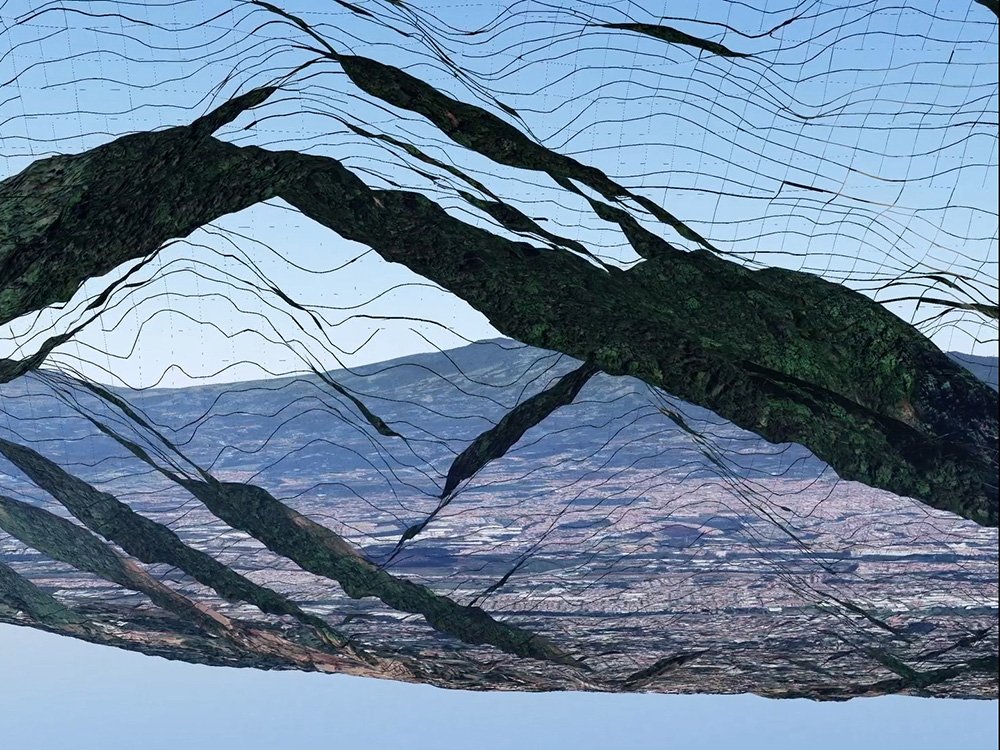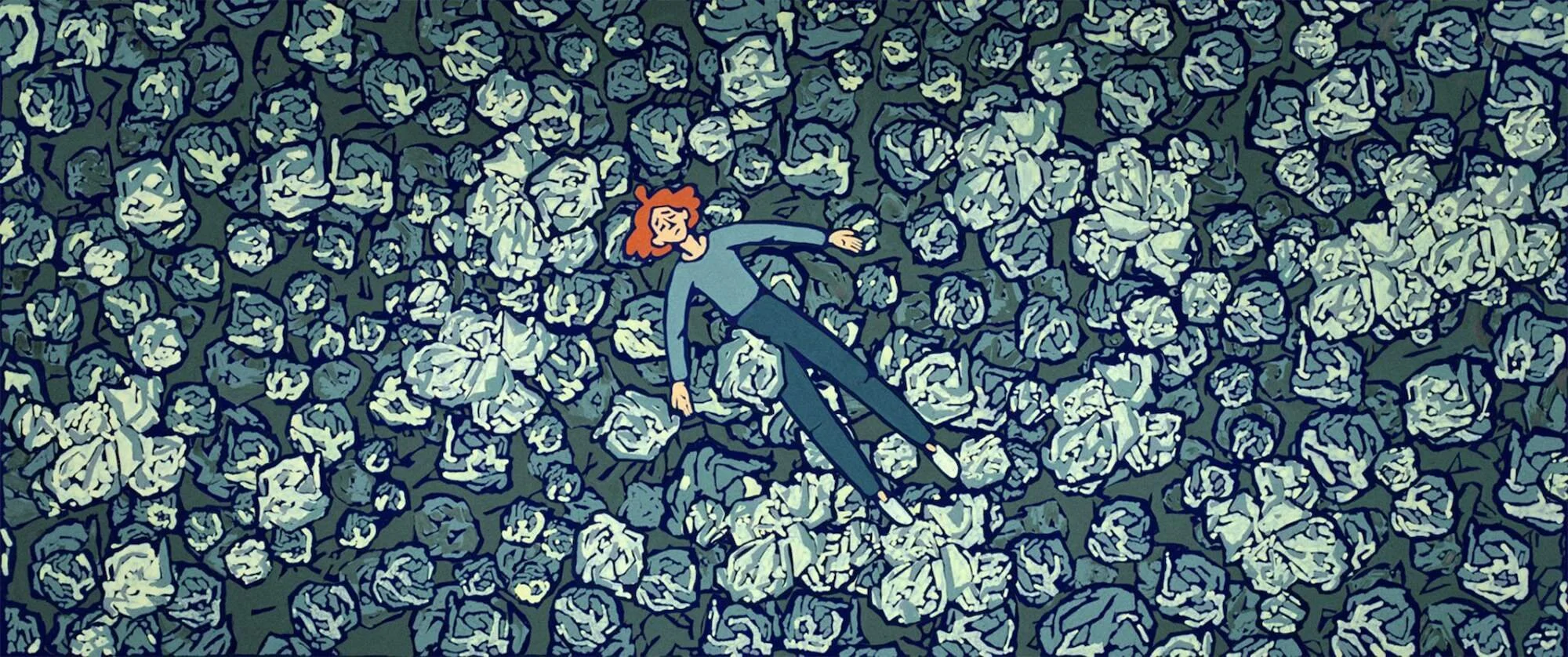
FRAGILE MEMORY
Memory is always fragile, both individual and collective. And in our virtualized and globalized age, it seems as if it is slipping through our fingers and leaving behind not hard, resistant fragments, but volatile traces that change shape with the slightest interaction with the environment. However, forgetting can be no less difficult and painful than remembering and recalling. It is worth looking for a balance between these processes, as well as within them. Then they are transformed into "reflecting" and "letting go," which also testify to memory, only more ecological in relation to its carriers.
Cinema is a form of active memory, an attempt to capture the redundancy of certain experiences, to reactivate and work through them. It is a therapeutic practice for all the players in the space that Film creates around itself — those who create, those who watch, and those who are just planning to join it.
The works included in this program are united by the theme of memory, but each of them speaks about it in a different way: some authors focus on their own history, while others combine the individual and the collective to better understand each of them through the interaction of these dimensions. Origin and roots, family and native space are aspects of existence within which filmmakers work with the experience of remembering. It is very vulnerable to the world of pandemics, wars and big data. This gives the films a special sentimentality that is unshakable until the last seconds of the runtime.
Screening duration: 79 min
Trigger and content warnings: cruelty to animals, nudity
The films are screened in OV with Ukrainian and English subtitles
Curated by Sasha Prokopenko
The films are available online in Ukraine, Poland, Czechia, Latvia, Lithuania, Estonia and Germany
18 November / 18:25 /
Zhovten Cinema, Classic hall
Konstantinovskaya St, 26
19 November / 18:35 /
KINO 42, Konstantinovskaya St, 11B
20 November / 20:10 /
Zhovten Cinema, Classic hall
Konstantinovskaya St, 26
MY OWN PERSONAL LEBANON / 2020
Theo Panagopoulos
In our lives, we do not search for, but continuously create ourselves. Identity is a complex dynamic puzzle that unites the past and the present, finding itself in the surfaces of the collective conscious and unconscious. Therefore, it is always about memory, individual and generational. And the questions about oneself "here and now" are unexplainable without questions about one's ancestors and their life paths.
The protagonist of the film captures himself in a moment of intense reflection on his own identity, its ethnic aspect. Half Greek, half Lebanese, he tries to build himself into a second identity as an adult. To do this, he turns to the past of his Lebanese mother, and films what is perhaps the first frank conversation about her youth in Beirut during the war.
In this way, the plot structure expands and delicately gives voice and visibility to those who, sometimes unconsciously, needed it. We are witnessing the painful process of reconstructing memory, which is very important for the mother and son to be able to freely create themselves in the future.
LOVE, DAD / 2021
Diana Cam Van Nguyen
The memory of a growing child tends to push potentially traumatic events into the space of the deep unconscious. Sometimes they remain there for the rest of a person's life, and in other cases they come out in fragments. In these cases, reconstructing what we remember about our past becomes perhaps the only way to find integrity and identity in the future.
Diana finds an old correspondence with her father. There, their communication is very close, full of devotion and tenderness. As a child, she built up an idealized image of him, turning a blind eye to many unpleasant things-until some of them became impossible to ignore. When her husband left the family, they became estranged, and much remained unspoken and unreflected.
Diana returns to the practice of writing letters to fill in the gaps of memory and tell her father about her experiences with his (absent) figure. Her text forms the narrative and content of the film. It becomes a space for the therapeutic reactualization of pain, which makes true healing possible.
Maria Luisa Santos, Carlo Nasisse
The places of memory are literally understood as a location or object that concentrates individual or collective memories. A broader interpretation suggests that there is more to this topographical dimension. According to philosophers, places of memory intertwine material, functional, and symbolic aspects, because they "always entail a trail of meanings and associations, always mean more than their purely material nature suggests." These semi-symbolic constructions play an important role for the community that creates them: they consolidate, mobilize, and clarify.
ADRESSES / 2023
The film explores how ordinary addresses can become such places of social memory, using the example of the filmmakers' native Costa Rica as a case study. Here, the address does not contain the usual street name and house number, but instead consists of a whole system of associations related to recognizable objects in the space: an old fig tree, a roadside supermarket, a parked car (which may have been gone for a long time). The address thus becomes a complex verbal construction woven with threads of collective memory.
The work has an interesting narrative structure. It begins with the co-author's story, expands to a discussion of a widespread phenomenon, and returns to the personal. This is how the inextricable connection between a person and the community is manifested — it is in the community that one should look for answers to questions about oneself.
VALERIA / 2023
Sara Jurinčić / Croatia / 16 min
A filmmaker travels to the island where her grandmother is buried. This experimental journey takes us back through her lineage of female ancestors.
HOMEBIRD / 2021
Ewa Smyk / United Kingdom, Poland / 10 min Struggling to make it in a big city, a young artist finds herself retreating into the rose-tinted memories of the village she left behind.
WRITTEN IN THE SAND / 2022
Yang Yu / the Netherlands / 11 min
"Forced to erasing memories — the death of data products."
We are well accustomed to and gradually rely on mobile phones or computers to record our lives and thoughts and become our personal friends and way of life. As people fragment their lives, they break down the events in their lives step by step into data records. For example, a smartphone health monitoring app that records daily physical activity.
Under these conditions, data products are internalized in people's egos. Suppose the memories stored in the human brain can be forgotten or remembered by people's own choices. So, after the personal data and data products as memory carriers are stored on the network, do they still have the user's decision-making power?
What should we do if this data is erased? Personal data loss leads to the loss of stored memories and people's online identities.
Xiami Music, China's most various music platform, was shut down on February 5, 2021. This project is informed by the author's personal stories, real experiences, and accounts of fragmented lives. Explore the attachment relationship between people and deleted Internet data products; under the conditions of accelerated technology and society, why people lose themselves because of the disappearance of data products, and the resulting sense of isolation is still present today in society. And how to fight the forced erasure of memory through the form of film.
Text: Mariia Vasylieva











